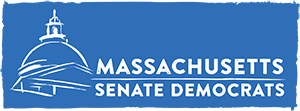Massachusetts Senate passes $1.5 billion education funding bill after lengthy debate

By Shira Schoenberg | Masslive | October 3, 2019
BOSTON — The Massachusetts Senate on Thursday passed a major overhaul of the education funding formula, which would require the state to spend another $1.5 billion annually on public education by the time it is fully implemented.
The bill, dubbed the Student Opportunity Act, is the most significant update to the funding formula since it was established in 1993.
It passed the Senate unanimously, 39-0.
“This additional funding in the bill…will help every single school district in Massachusetts,” said Senate Education Chairman Jason Lewis, D-Winchester.
The bill now goes to the House for consideration.
During hours of debate, which stretched from noon until after 8 p.m., lawmakers praised the bill as a major step toward closing the achievement gap, in which poor, minority students have consistently underperformed their white, wealthier peers.
Lewis said many districts are struggling today with a lack of resources – they may have no librarian, no full-time nurse, limited art and music education, large class sizes and inadequate counseling services.
Sen. Sonia Chang-Diaz, D-Boston, a former Education Committee chair and a leader on education funding reform, said, “This bill stands as our commitment that, in Massachusetts, zip code must not be destiny.”
In 2015, a commission formed to look at the state formula that funds public education found that it underfunds the cost of education by around $1 billion a year by not accurately accounting for the costs of special education, employee health insurance, teaching English language learners and educating poor students in districts with a high concentration of poverty.
The bill would provide additional money for each of these categories. The biggest funding boosts would go to districts with large numbers of poor students and English language learners.
The bill would also let districts obtain reimbursements for transporting students to out-of-district special education placements, create a grant fund for innovative educational approaches, fully fund charter school reimbursements, and raise a cap on state funding for school building projects.
Districts would have to develop and make public plans for closing opportunity gaps, with specific goals and metrics for tracking success.
According to Senate Ways and Means Committee Chairman Michael Rodrigues, D-Westport, the bill will cost around $300 million more each year during the seven-year phase-in period.
The bill does not rely on any new taxes or revenue sources. “We believe this bill is affordable through our currently available resources,” Rodrigues said.
Lawmakers introduced 69 amendments, though some were withdrawn or rejected with no or little discussion.
Sen. Jo Comerford, D-Northampton, pushed unsuccessfully for an even greater increase in special education funding, arguing that schools are getting significantly less in reimbursements than they pay for special education. “We are missing the boat with special education,” Comerford said.
Some debate surrounded the state’s underfunding of reimbursements to districts for the tuition they pay for students who attend charter schools, although no amendments were ultimately adopted related to charter schools. Sen. Marc Pacheco, D-Taunton, unsuccessfully proposed an amendment that would freeze charter school growth any year the state did not fully fund charter school reimbursements.
The Senate unanimously adopted an amendment by Sen. Pat Jehlen, D-Somerville, refining the requirement that districts develop a plan every three years to show how they will use the money they are getting to address achievement gaps. Jehlen’s amendment would require local school committees to approve the plans and would require superintendents to consider input from parents, including parents of special education students and English language learners. The plans would have to lay out exactly how school districts would address achievement gaps and set measurable targets for reducing gaps.
One amendment that was adopted would open the door for more money to be spent in the future to cover expenses for recovery high schools for students with substance use disorders. Other amendments would establish requirements for studies related to various issues, such as municipal contributions of small towns, and unreimbursed costs for regional school transportation and homeless student transportation.
The Fund Our Future campaign, a coalition of unions, education advocates, minority groups and other organizing groups that has been pushing for education funding reform, said in a statement, “Today’s historic vote brings us another step closer to finally ensuring that every student in Massachusetts, no matter what community they live in, has the same access to a great public education.”
The American Federation of Teachers Massachusetts, the Massachusetts Teachers Association and the Boston Teachers Union also applauded the Senate for passing the bill.
